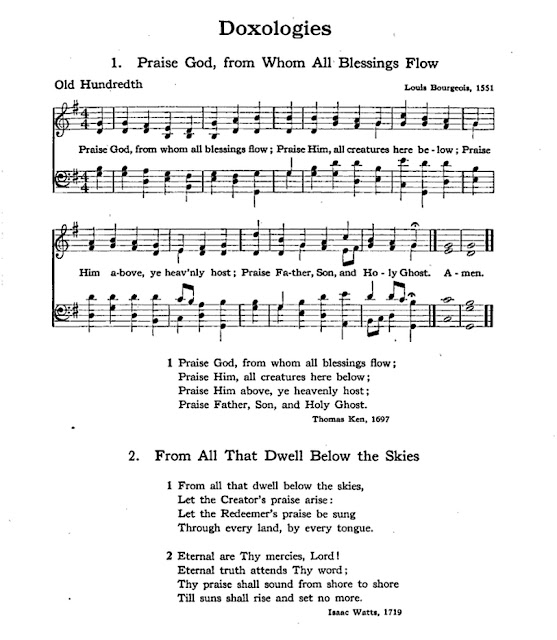Praise Him all creatures here below
Praise Him above ye heavenly hosts
Praise Father Son and Holy Ghost-Amen.
- Reasons for Praise
- Read Psalms 103:1. What does it mean to praise God with our "inmost being?" (This is not superficial praise. This is praising God from our core - from deep inside.)
- Read Psalms 103:2. I often hear people say we should praise God "because of who He is." What additional reason does the Psalmist give us to praise God? (He gives us benefits! This seems a selfish reason to give praise, but it is natural (and easy) to praise someone who helps us.)
- Read Psalms 103:3-5. What is the Psalmist describing? (The previously mentioned benefits that God gives us!)
- Thomas Ken (1637-1711) was an Englishman and an ordained Anglican priest. He served as Rector of several parishes, was briefly chaplain to Princess Mary, and later to the British fleet. He published many poems, along with a Manual fo Prayers.
After his parents died, Thomas was enrolled by his sister into an all- boy's school, Winchester College. He would return to the same school as Chaplain many years later. In order to motivate his students in their devotions, Thomas wrote a three stanza hymn -- one verse to be sung upon waking and one before bed. The third verse was to be sung at midnight, if a boy found sleep difficult.
Today, the writing of this hymn may seem an innovative way to motivate teenage boys. In Thomas' day however, the writing of this hymn for such a purpose was somewhat revolutionary. For centuries hymns of the church were sung only by monks. Although at this point in history protestant churches in some countries were beginning to introduce hymns into congregational singing, it would be several years before England would officially sanction the practice (See: History of Hymns). For this reason, Thomas Ken has been called 'England's first hymnist.'
The refrain to all three verses of Thomas' hymn has since become one of the most widely-sung songs in the world, and is referred to in many circles simply as, The Doxology
Towards the end of his life, Thomas Ken was imprisoned by King James II, for his forward Protestant thinking. Upon his release, he quietly retired from the priesthood and went to live with some friends until his death, on March 11, 1711. When he was buried at sunrise, The Doxology was sung at his funeral.

The doxology. Powerful words, powerful music. Praising God from whom all blessings flow today. Count your blessings, write them down, embrace them, embrace the Lord. Blessed Sunday to you all.



No comments:
Post a Comment